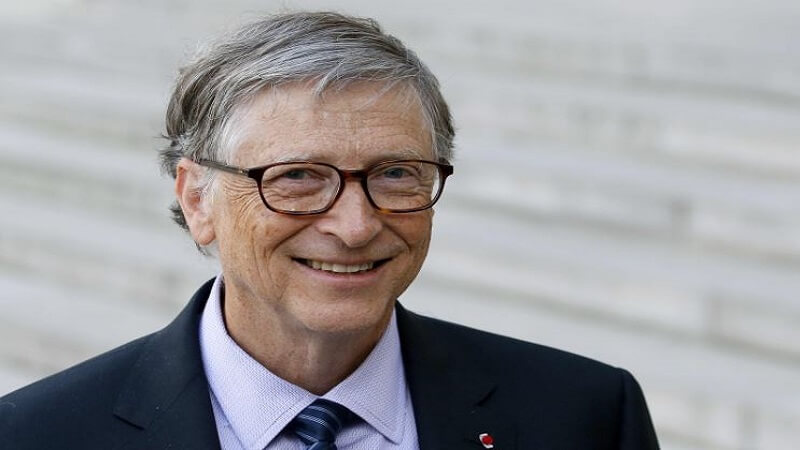Bill Gates, co-founder of Microsoft and one of the wealthiest individuals in the world, has a net worth that fluctuates significantly, often ranking him among the top billionaires globally. His wealth is primarily derived from his stake in Microsoft and various investments.
However, Gates is not just known for his financial success; he is also a prominent philanthropist, focusing on global health, education, and poverty alleviation through the Bill & Melinda Gates Foundation. While Gates has expressed skepticism about cryptocurrencies, including the volatility of assets like Dogecoin Price, understanding his perspective and the evolving landscape of digital currencies can provide valuable insights for beginners navigating this intriguing financial realm.
Understanding Bill Gates’ Wealth
As of 2024, Bill Gates’ net worth is estimated to be around $120 billion. This impressive fortune stems from his pioneering work in technology and subsequent investments across various sectors, including renewable energy and healthcare. Gates’ approach to wealth has always been driven by a sense of responsibility, emphasizing the importance of giving back. His philanthropic initiatives, particularly in addressing health crises and promoting education in underprivileged areas, reflect a commitment to making a positive impact on the world.
Gates and Cryptocurrencies: A Critical View
Bill Gates has been vocal about his skepticism towards cryptocurrencies. He has expressed concerns regarding their use in illegal activities and their environmental impact, especially related to energy-intensive mining processes. While his viewpoint might discourage some from investing in cryptocurrencies, it also opens up a broader conversation about the potential risks and benefits associated with digital currencies.
The Risks of Cryptocurrency
For beginners, it’s crucial to understand the potential risks that accompany cryptocurrency investments. Here are a few key concerns often highlighted by skeptics like Gates:
- Volatility: Cryptocurrencies are notorious for their price fluctuations. A coin that surges one day may plummet the next, leading to potential losses for investors.
- Lack of Regulation: The cryptocurrency market is less regulated than traditional financial markets, which can expose investors to scams and fraudulent schemes.
- Security Issues: Cybersecurity is a significant concern in the crypto space. Hacks and breaches can result in substantial losses for investors who do not take appropriate precautions.
- Environmental Impact: The process of mining cryptocurrencies like Bitcoin requires substantial energy, contributing to environmental concerns. Gates has emphasized the need for sustainable solutions in technology and finance.
The Potential of Blockchain Technology
While Gates may have reservations about cryptocurrencies, he has acknowledged the underlying technology—blockchain—as a transformative force in various industries. Blockchain offers a secure and transparent way to record transactions, which could revolutionize sectors such as finance, supply chain management, and even healthcare.
- Transparency and Security: Blockchain’s decentralized nature means that transactions are recorded on a public ledger, making it difficult for bad actors to manipulate data. This can enhance trust in systems where transparency is crucial.
- Financial Inclusion: One of the most compelling aspects of cryptocurrencies is their potential to provide financial services to unbanked populations. In many developing countries, individuals lack access to traditional banking systems. Cryptocurrencies can offer a way to store value and facilitate transactions without the need for a bank.
- Smart Contracts: These are self-executing contracts with the terms of the agreement directly written into code. They can streamline processes in various industries, reducing the need for intermediaries and lowering costs.
The Future of Crypto and Philanthropy
As Gates continues to focus on global challenges, it’s worth considering how cryptocurrencies could intersect with philanthropy. There are innovative projects and organizations using blockchain to improve transparency and efficiency in charitable giving.
- Transparency in Donations: Blockchain can track donations from start to finish, ensuring that funds are used as intended. This could enhance donor trust and encourage more significant contributions to charitable causes.
- Tokenization of Assets: Some organizations are exploring how to tokenize assets, allowing for fractional ownership and investment opportunities in social impact projects. This could attract more investors and facilitate funding for essential initiatives.
- Decentralized Finance (DeFi): DeFi platforms offer financial services without traditional banks, potentially providing greater access to capital for nonprofits and social enterprises. These platforms can create innovative funding models that align with Gates’ mission of addressing global issues.
Learning from Bill Gates’ Approach
For individuals interested in cryptocurrency, Bill Gates’ perspective serves as a reminder to approach investments cautiously. Here are some takeaways for beginners:
- Educate Yourself: Understanding the fundamentals of cryptocurrencies and blockchain technology is essential before investing. Resources such as online courses, podcasts, and community forums can provide valuable insights.
- Diversify Your Portfolio: Like any investment, diversification can mitigate risk. Consider allocating a portion of your portfolio to cryptocurrencies while balancing it with traditional investments.
- Stay Informed: The cryptocurrency landscape is constantly evolving. Keeping up with news and trends can help you make informed decisions and adapt to changes in the market.
- Consider the Ethical Implications: As Gates emphasizes the importance of social responsibility, consider the ethical implications of your investments. Research projects that align with your values and support initiatives that promote positive change.
